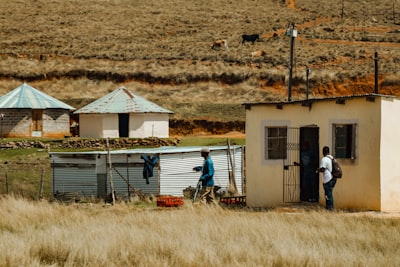Summary
The recent arrest of Tšolo Thakeli, a young social activist in Lesotho, has brought to the forefront the risks faced by those who criticize their government in nations where freedom of expression is fragile. Thakeli’s crime? Posting a video on social media questioning Prime Minister Sam Matekane’s unfulfilled promise to address rampant youth unemployment. Despite lacking evidence, authorities sought to charge him with inciting violence and later with sedition. Though briefly released, he was warned by police not to mention the Prime Minister again.
Thakeli's experience—detained in harsh conditions, threatened, and possibly facing the revocation of his bail—has ignited public protests and regional concern among human rights activists. The arrest highlights deep frustrations over chronic unemployment, government opacity, and the struggle for democratic accountability in Lesotho, where challenges facing young people are mounting.
Analysis
At its core, this story illustrates the collision between grassroots activism and state power in the context of southern Africa’s ongoing democratic struggles. Tšolo Thakeli’s questioning of government promises is, by any liberal democratic standard, a legitimate exercise of citizenship. Yet his treatment reveals an environment where dissent is not tolerated, and questioning leaders can have severe personal consequences.
The government’s heavy-handed response signals insecurity and a desire to silence criticism rather than address substantive problems like unemployment—which, according to the World Bank, afflicts nearly a quarter of young Basotho. The authorities’ behavior underscores worrying patterns: using vague or sweeping charges (like sedition), employing intimidation tactics, and expressing little concern for the individual’s safety.
In framing this as sedition rather than simply civic participation, the state seems less interested in maintaining public order than protecting the personal image of those in power. The remarks attributed to the police commissioner—a veiled threat of withdrawal of protection—highlight the precarious position of critics and suggest a systemic tolerance of impunity for those who may target dissenters.
Discussion
Why does this incident matter beyond Lesotho’s borders? The targeting of Thakeli for his advocacy reflects a broader regional and even global trend: the shrinking space for civic activism in fragile or partial democracies. Across southern Africa—and indeed worldwide—we see similar tactics used against voices who challenge the status quo, from legal harassment to outright intimidation.
The Lesotho case also raises pointed questions: What is the role of humor and social media in modern resistance movements, and how does state power adapt to these new oppositional tools? Thakeli’s use of memes and satire to voice discontent mobilizes a generation—and evidently rattles a government wary of viral, bottom-up criticism.
On a social and ethical level, the episode challenges us to reconsider the boundaries of legitimate dissent. Should simply speaking a politician’s name and raising policy questions endanger one’s freedom or safety? For societies seeking to build lasting solutions to economic distress—such as Lesotho’s dire youth unemployment—open dialogue and government accountability are not luxuries, but necessities for progress.
Lastly, this event spotlights the personal cost borne by those who persist in civic engagement under repressive conditions. Thakeli’s story puts a human face on abstraction: courage, fear, indignation, and stubborn hope all pulsing beneath the statistics and headlines. His ordeal is not just his own—it is emblematic of those who, against the odds, continue demanding better futures for themselves and their compatriots.
Conclusion
Thakeli’s case should prompt serious reflection both within and beyond Lesotho. If questioning your leaders is a crime, what hope is there for addressing the deeper crises driving people to protest in the first place? As this and similar stories circulate globally, they become a rallying cry not just for rights in Lesotho but for all those who believe that democracy is only as strong as its space for dissent.

Comments
No comments yet. Be the first to comment!